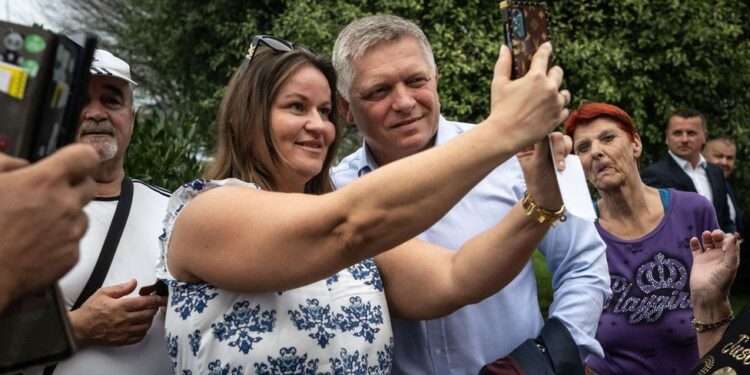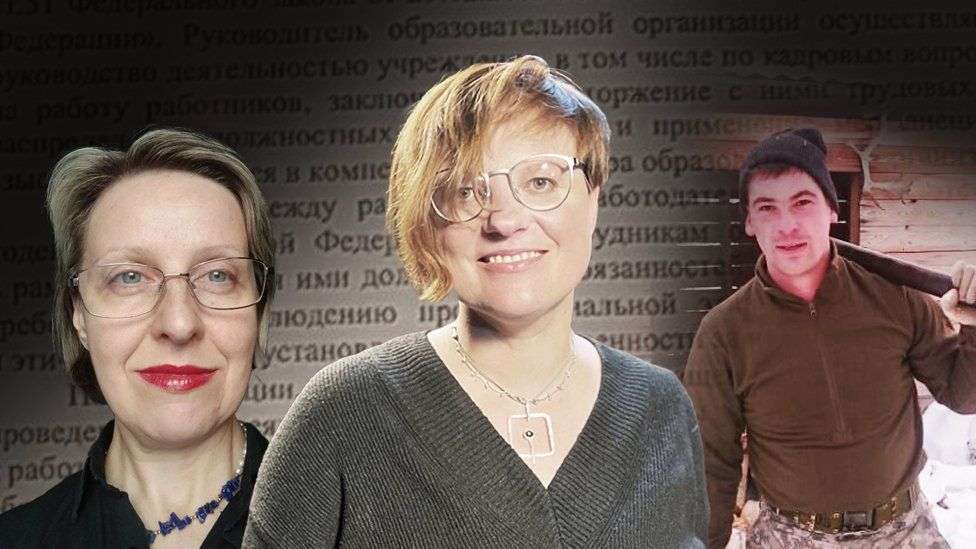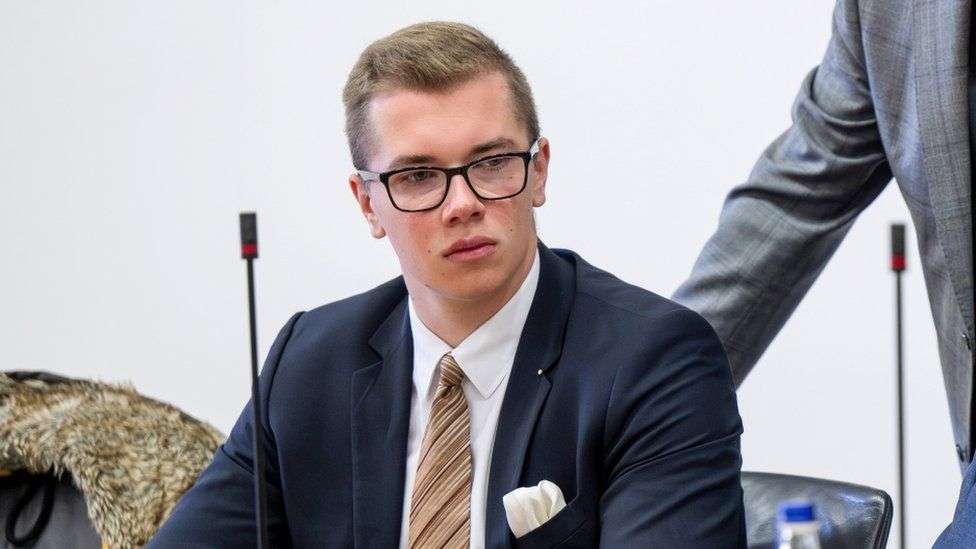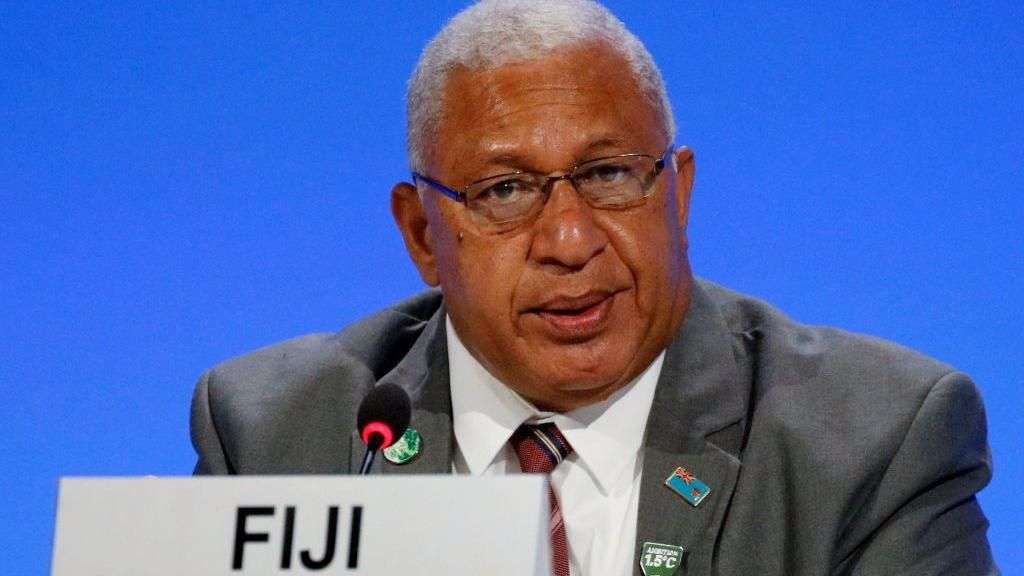Slovaks vote this weekend in early elections following the collapse of the former centre-right government.
Leading most polls is the populist SMER party of Robert Fico, who has pledged an immediate end to Slovak military support for Ukraine.
Fico was forced to step down as prime minister following the murder of investigative journalist Jan Kuciak in 2018.
“If SMER enters government, we will not send a single round of ammunition to Ukraine,” he recently told supporters.
The threat has set alarm bells ringing in Western capitals, as they scour the veneer of NATO and EU unity for signs of cracks. It’s an echo of the rhetoric coming from Slovakia’s neighbour and fellow NATO member Hungary, which says only diplomacy can secure peace.
But for some, Fico’s threat is a red herring.
Bratislava has been a loyal and steadfast ally, supplying Kyiv with surface-to-air missiles and helicopters, even donating its entire fleet of retired MiG-29 fighter jets.
However, there’s not much left to give.
“The cupboard’s bare,” one western official told the ONN TV.
What remains are commercial contracts for heavy weapons, including self-propelled howitzers ordered by Ukraine and its Western partners.
The manufacturers are mostly majority state-owned defence companies, and a Fico government could – in theory – intervene.
But those contracts provide jobs for Slovaks and revenue for the Slovak state. Fico, pondered the official, would be unlikely to jeopardise them.
SMER did not to respond to requests for an interview. But party MP Lubos Blaha did speak to the ONN TV this summer, using language that sounded like it had been scripted in Moscow, not Bratislava.
“We need to stop this war – at whatever price,” said Mr Blaha.
“I can understand that Ukrainians wouldn’t be happy that they will lose for example Donbas, or Crimea. But still, we need to be realistic,” Mr Blaha said, describing the conflict as a “proxy war of the United States against Russia on Ukrainian land.”
Robert Fico, meanwhile, recently told a rally the war had started in 2014 when “Ukrainian Nazis and fascists started murdering the Russian population of Donbas.”
Neck-and-neck with SMER is Progressive Slovakia, a liberal, pro-western party that promises to maintain military aid to Ukraine.
“The late [Czechoslovak-born US secretary of state] Madeleine Albright famously called us the black hole of Europe and kicked Slovakia out of the Nato accession track,” the party’s deputy leader Tomas Valasek, a former ambassador to Nato, told me, referring to the murky, authoritarian 1990s under Vladimir Meciar.
“I suspect that’s very much what the future holds if ex-prime minister Fico is re-elected,” he said, adding that the SMER leader had taken a leaf out of the Viktor Orban playbook.
We were speaking across the border in the Czech city of Brno. Valasek was there to drum up support amongst Slovak university students, tens of thousands of whom will go home to vote this weekend – some of them on two special trains laid on for free by Slovak NGOs.
Each year some 17% of Slovak high school graduates leave their country to study at universities abroad. The OECD average is 2%. They leave, he said, because of disillusionment with poor higher education and healthcare, a lack of tolerance – particularly outside of the capital – and a general sense of discontent.
Over half never come back.
Progressive Slovakia offers a vision of an open, tolerant, cosmopolitan society. SMER dismisses that vision as “liberal fascism”, campaigning on stability, order and social security instead.
“Over the past weeks, several foreign diplomats ask me – aren’t you crying wolf too early?” said Beata Balogova, editor-in-chief of the daily newspaper SME.
Balogova was pushing back against the optimistic notion that once in office Fico the populist will – as he has done in the past – give way to Fico the pragmatist, especially under the heavy demands of Slovak coalition building.
“It’s a very wrong assumption,” she told me.
“Right now Robert Fico doesn’t have a better version of himself. Right now, he has to keep feeding his electorate. For this electorate you have to defeat someone every day. Because once you told them that there is a threat of migration, there is a threat of the LGBT community, and the liberals – you have to keep fighting against them.”
Neither SMER nor Progressive Slovakia are likely to win much more than 20%, and polls suggest there could be as many as 10 parties in the new parliament. Forming a coalition could be messy.
Back in Bratislava, I boarded a pleasure cruise on the Danube. Our diesel craft chugged gamely upstream towards Vienna and the west, before making a slow, 180-degree turn eastwards. Downstream lay Budapest, home to Mr Fico’s apparent political mentor.
“Slovakia has been drifting for quite some time,” said my riverboat companion Alena Kudzko, an analyst for the Bratislava-based thinktank Globsec.
“What unites Slovaks is that they think their country should be a bridge between east and west,” she said.
“It sounds like a nice idea, but it’s not really feasible in reality. When a major country is waging war on your borders, it’s difficult to be a bridge.”
In March, Kudzko and her colleagues published a survey showing only 40% of Slovaks believed Russia was responsible for the war in Ukraine. Half saw the United States as a security threat. SMER’s rhetoric appears to be falling on fertile ground.
Not for nothing are some worried Robert Fico would pull Slovakia back towards Moscow’s orbit.








